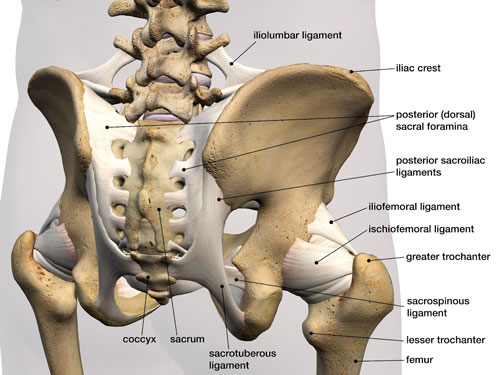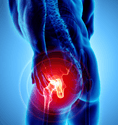Hip Pain Relief in Pittsburgh, PA
Causes and Symptoms of Hip Pain
Hip pain is one of the most common musculoskeletal problems affecting Americans with 15% being affected at some point in their lives. People who play sports have a greater risk of some kind of hip issue.
Problems with the hip joint can cause the hip or groin to experience different degrees of pain. These problems trace back to the type of tissue being affected (bone, tendon, ligament, bursa, and muscles). Hip pain may also trigger problems in other parts of your body, including the lower back and knees.
Causes of hip pain
1: Arthritis
Arthritis is swelling or numbness that occurs in your joints. The symptoms of this condition include stiffness and joint pain. There are different types of arthritis. Osteoarthritis and rheumatoid arthritis specifically trigger hip pain. These happen mainly in adults and lead to an inflammation of the hip joint. The pain increases in intensity over time.
Hip osteoarthritis happens due to an injury to a joint that breaks down the cartilage tissue. In turn, the breakdown initiates deformity, swelling, and pain. Hip osteoarthritis undergoes gradual changes over the years.

2: Hip labral tear
A torn hip labrum can lead to pain and motion difficulties in the hip. Additionally, it can lock up the hip. A hip labral tear comes about as a result of traumatic injuries, overuse, and abnormalities in the hip bone alignment. You can undergo treatment for hip labral tears with and without surgery. The extent to which you may experience hip labral varies. In some cases, the hip labrum may have mini tears. Alternatively, some part of the hip labrum could tear away from the socket bone. That happens due to trauma.
3: Bursitis
Bursa is a sac of liquid located between tissues like tendons, muscles, and bone. It plays cushioning role between these tissues as they rub against each other. Inflammation on the bursa can cause extensive pain as the cushion wears off. The bursa inflammation happens as a result of repetitive activities that overwork the hip joint. As a result, the irritation turns into hip pain. This is one of the most common causes of hip pain.
4: Tendinitis
A tendon is a thick cord comprising fibers. It helps connect bones and muscles. Irritated or inflamed tendons make you experience pain, mild swelling, and tenderness in the hip joint. The condition often happens due to too much activity on the muscles.
Athletes have the highest risk level of developing hip tendinitis. The condition gradually develops as you engage more in intense activity. If left untreated, it can get worse to the point where your daily activities are inhibited. You may even be unable to move your hip.
Symptoms of hip pain
The symptoms of hip pain vary based on what triggers the pain. In general, you will have discomfort in your:
-
Hip joint
-
Buttocks
-
Groin
Frequently Asked Questions
What is the most common reason for hip pain?
The most common reason for hip pain is arthritis (which is inflammation of the joint). Other reasons are tendonitis, bursitis, an unlevel pelvis, and lumbar spine problems.
What are the first signs of hip problems?
The first signs of hip problems are:
- Hip or groin pain (typically located between the hip & the knee)
- Stiffness (difficulty bending your leg to put on your socks or shoes)
- Swelling or tenderness around the hip area
- Limping
How do you know if hip pain is muscle or joint?
It depends on where the pain originates. If it is coming from the joint, you will feel pain in the inside of the hip or the groin. If it is outside the hip, outer buttock, or upper thigh, the problem is usually soft tissue in nature (muscle, ligament, tendon).
When should I get my hip pain checked out?
If the hip pain is caused by trauma (like a car accident), or you lose the ability to bear weight on the affected side, you need to get it checked out by an orthopedic surgeon. If it is a progressive or ongoing problem, you need to have it checked out by a chiropractor.
How long does it typically take to see improvement in hip pain with non-surgical treatments?
Results are typically very fast with some patients feeling relief in as little as one treatment. However, results vary and can be affected by your age, the severity of the problem, and your own innate recuperative powers of healing.
Are there any risks or side effects associated with non-surgical treatments for hip pain, and if so, what are they?
There really aren’t any risks involved in physical treatments. Unlike drugs, these methods are non-toxic (compared to drugs). And they are non-invasive (compared to surgery). You have nothing to lose but the pain.



